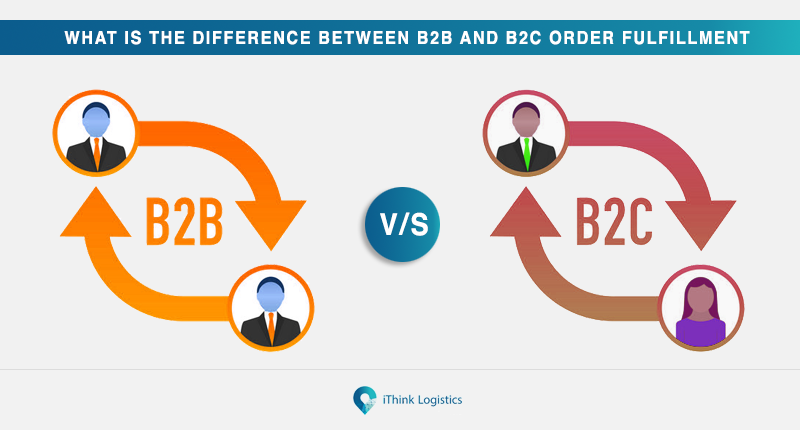In today’s rapidly evolving business landscape, remote work has become the new norm. As organizations adapt to this paradigm shift, sales teams are also transitioning to remote setups. However, managing and coaching remote sales teams can present unique challenges. In this article, we will explore effective strategies for sales coaching in remote teams, focusing on enhancing communication and leveraging technology to produce the best results.
-
Enhancing Communication for Optimal Results
Effective communication is crucial for successful sales coaching in remote teams. In a virtual environment, where face-to-face interactions are limited, it is essential to employ strategies that enhance communication and drive optimal results.
- Utilizing Multimedia Resources:
To captivate and engage remote sales teams, sales coaches can utilize a diverse range of multimedia resources. Incorporating videos, infographics, and interactive presentations can help break down complex concepts into easily digestible formats. This approach enhances comprehension, stimulates critical thinking, and fosters a deeper understanding of sales strategies and techniques. By utilizing multimedia resources, coaches ensure that remote sales professionals receive information in a manner that resonates with them, leading to improved performance.
- Crafting Compelling Written Communication:
Written communication plays a significant role in remote sales coaching. Coaches should focus on crafting compelling written content that is informative and engaging. By utilizing a mix of sentence lengths and structures, coaches can create a dynamic flow that keeps remote sales teams interested and motivated. Incorporating descriptive language, storytelling elements, and thought-provoking questions can further enhance written communication, encouraging remote sales professionals to think critically and apply their knowledge effectively.
- Encouraging Active Participation:
Remote sales coaching should be a two-way communication process. Encouraging active participation from remote sales teams fosters engagement and produces better results. Sales coaches can create opportunities for remote professionals to share their insights, ask questions, and contribute to discussions. This interactive approach promotes collaboration and empowers remote sales professionals to take ownership of their learning and development. By encouraging active participation, coaches tap into the collective knowledge and experience of the team, leading to innovative solutions and improved sales performance.
- Providing Regular Feedback and Support:
Feedback is crucial for growth and improvement. In a remote sales coaching setup, providing regular feedback becomes even more important. Sales coaches should establish a feedback loop that includes constructive criticism, positive reinforcement, and actionable suggestions. By offering specific and timely feedback, coaches help remote sales professionals identify areas for improvement and provide guidance on how to achieve better results. This feedback-driven approach creates a supportive environment that encourages continuous learning and drives optimal performance.
-
Leveraging Technology for Seamless Collaboration and Learning
Technology plays a pivotal role in remote sales coaching. Sales coaches can leverage various digital tools and platforms to enhance the effectiveness of their coaching efforts, enabling seamless collaboration and learning within remote sales teams.
- Video Conferencing and Virtual Meetings:
Video conferencing software enables face-to-face interactions, fostering a sense of connection and personalization. Sales coaches can conduct virtual meetings, team huddles, or one-on-one coaching sessions using video conferencing tools. This allows for real-time communication, non-verbal cues, and the opportunity to build rapport with remote sales professionals. By leveraging video conferencing, coaches create a collaborative environment that promotes engagement, active participation, and effective coaching interactions.
- Collaborative Project Management Tools:
Collaborative project management tools facilitate real-time feedback and tracking of progress within remote sales teams. These tools enable sales coaches to assign tasks, set deadlines, and monitor the progress of individual team members. By utilizing project management tools, coaches provide ongoing support, identify areas for improvement, and ensure that remote sales professionals stay on track toward their goals. This technology-driven approach fosters accountability, transparency, and continuous learning within the remote sales team.
- AI-powered Chatbots and Virtual Assistants:
Utilizing AI-powered chatbots or virtual assistants can provide instant support and guidance to remote sales teams. These intelligent tools can answer frequently asked questions, provide resources, and offer personalized recommendations based on individual needs. By leveraging AI technology, sales coaches ensure that remote sales professionals have access to the information they need, when they need it. This empowers remote sales teams to overcome challenges, enhance their skills, and achieve optimal results.
How can you produce the best results?
To produce the best results in sales coaching for remote teams, consider implementing the following strategies:
- Establish clear and concise communication channels with your remote sales team: Use video conferencing, instant messaging, and email to ensure everyone is on the same page. Clearly communicate expectations, goals, and objectives to avoid any misunderstandings.
- Regular Check-ins: Schedule regular check-ins with individual team members to provide guidance, support, and feedback. These check-ins can be done through video calls or phone conversations. Use this time to address any challenges, provide coaching, and offer solutions to help team members improve their sales performance.
- Goal Setting: Set clear and measurable goals for each team member. Collaboratively establish targets that align with the overall sales objectives of the organization. Regularly review progress and provide feedback to keep team members motivated and focused on achieving their goals.
- Training and Development: Invest in training and development programs for your remote sales team. Provide access to online courses, webinars, and resources that can enhance their sales skills and knowledge. Encourage continuous learning and provide opportunities for skill-building to ensure your team stays competitive and up-to-date with industry trends.
- Performance Tracking: Implement a system to track and measure the performance of your remote sales team. Use key performance indicators (KPIs) such as sales targets, conversion rates, and customer satisfaction metrics to evaluate individual and team performance. Regularly review these metrics and provide constructive feedback to help team members improve their results.
- Collaboration and Team Building: Foster a sense of teamwork and collaboration among your remote sales team. Encourage regular communication and collaboration between team members through virtual team meetings, group projects, and shared platforms. This helps build camaraderie, promotes knowledge sharing, and enhances overall team performance.
- Recognition and Rewards: Recognize and reward outstanding performance within your remote sales team. Celebrate achievements, acknowledge milestones, and provide incentives to motivate and inspire your team members. This can be done through virtual recognition ceremonies, personalized messages, or even monetary rewards.
- Continuous Feedback: Provide ongoing feedback to your remote sales team. Offer constructive criticism, highlight areas of improvement, and provide actionable suggestions for growth. Regularly communicate with your team members to ensure they feel supported and have the necessary resources to succeed.
- Technology and Tools: Leverage technology and sales enablement tools to enhance the productivity and effectiveness of your remote sales team. Use customer relationship management (CRM) software, sales analytics tools, and virtual collaboration platforms to streamline processes, track progress, and facilitate communication.
- Flexibility and Work-Life Balance: Recognize the importance of work-life balance for your remote sales team. Offer flexibility in work schedules, accommodate personal commitments, and promote a healthy work environment. This helps reduce stress, increase job satisfaction, and ultimately leads to better performance.
By implementing these strategies, you can create a supportive and productive environment for your remote sales team, leading to optimal results in sales coaching.
Sales coaching for remote teams requires a thoughtful approach that focuses on enhancing communication and leveraging technology. By utilizing multimedia resources, crafting compelling written communication, encouraging active participation, and providing regular feedback and support, sales coaches can foster engagement and drive optimal performance. Additionally, by leveraging technology tools such as video conferencing, collaborative project management platforms, and AI-powered chatbots such as Seekit which coaches seamless collaboration and learning through its interactive call summaries within remote sales teams. With the right strategies in place, organizations can empower their remote sales professionals to achieve remarkable results in today’s dynamic business landscape.
Also Read: How can you give Effective Sales Coaching to a New Hiring?





